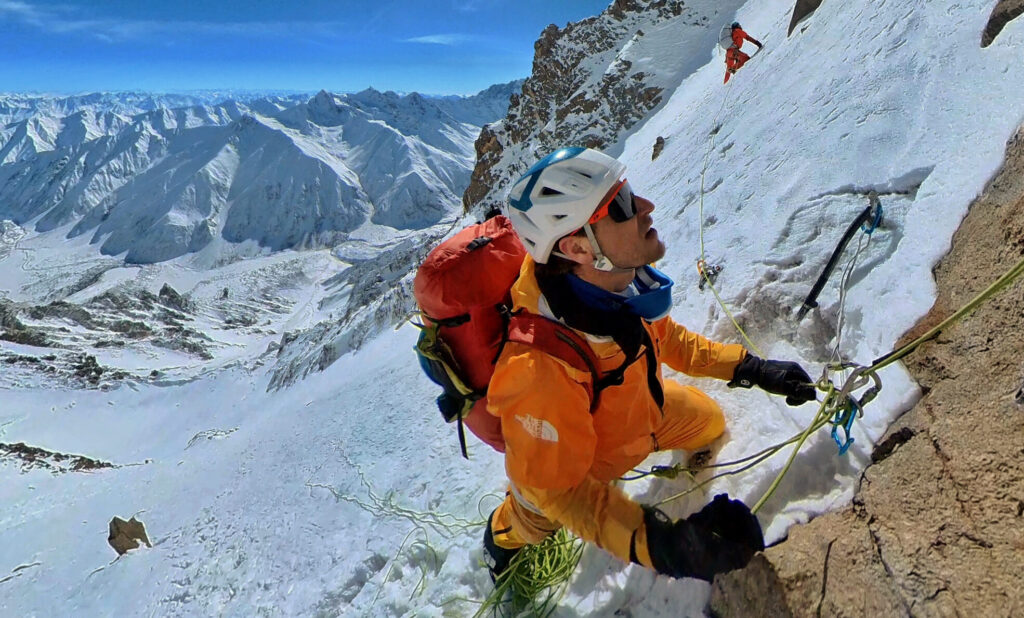The Epigenetics of Acclimatization and Adaptations to High Altitude
By: Scott Johnston
Posted:

There used to be a debate in the human behavioral sciences termed “nature vs. nurture.” It went something like this: Is your destiny predetermined by your genetic coding inherited from your parents? Or does your environment determine your behavior, health, talents, intelligence, etc?
In light of the discoveries in genetics over the past few decades, we now know that it is not “nature vs. nurture.” A correct understanding is more like “nature AND nurture.”
While the genes that make us unique individuals are inherited (the nature part), we can significantly enhance or suppress certain qualities that those genes affect (the nurture bit) through epigenetics.
Epigenetics studies changes in organisms caused by gene expression modification rather than altering the genetic code itself.
The Endurance Training Cascade shown in our How Training Works article is a prime example of epigenetics.
To illustrate how epigenetics works, I’ll use a gross oversimplification of what happens when performing an extensive aerobic exercise like running in Zone 2 for an hour. The run stresses the aerobic metabolism of those working muscles’ cells. As a result, an enzyme called AMPK is released in those propelling muscles’ cells. AMPK, in turn, triggers the release/production of a protein known as PGC-1 . PGC-1 is what is known as a transcription activator whose role is to turn on or up-regulate genes responsible for mitochondrial biogenesis. As you might recall from chapter two of Training for the Uphill Athlete, an increase in mitochondrial mass in the muscle cells of these working muscles improves their aerobic capacity. So there you have a simplified look at some of the Endurance Training Cascade steps that start with you going for a run and ending up with improved aerobic fitness.
Epigenetics is the primary reason that training must be consistent for months at a time and is most beneficial if it is consistent for years. Through routine epigenetic modification of the desired gene’s expression, you are literally changing your genetics and creating a more fit version of yourself. One of the signaling steps of the Endurance Training Cascade that affects gene expression is known as methylation, in which cells add methyl groups chemical tags to the DNA.
Methylation is one result of externally applied physical or environmental stressors like going for a run or living at a high altitude. It turns on or off specific genes. This strategy allows for adaptation to high altitudes much more quickly than evolution’s slow grind on genetics.
Recent studies have begun to shed new light on how epigenetics of adaptations to altitude affect our ability to acclimate. While there is still much to be discovered, it has long been known that populations indigenous to high altitudes have developed specific characteristics that make those people better able to cope with hypoxic conditions.
One of these studies, Genome-Wide Epigenetic Signatures of Adaptive Developmental Plasticity in the Andes, examined the epigenetics in the Quechua people who live at altitudes of 2500-3000 meters in the Andes of Peru.
This study looked at about 600 Quechua. It divided them into three groups:
The study showed that those in groups 1 and 2 showed significant methylation of genes involved with creating red blood cells and building endurance muscle regardless of whether they moved to lower altitudes later in life. These epigenetic modifications became permanent in the DNA of these Quechua because they were exposed to low oxygen conditions before birth and during childhood.
In episode 10 of the Evokecast, Kilian Jornet and I touched on his ease of adaptation to high elevations. Kilian spent the first 20 years of his life living at 2500m. It seems highly likely this resulted in epigenetic changes to his genome that allowed him to go from sea level to not just winning but setting a new course record on the grueling Hardrock 100-mile race in Colorado at altitudes up to 4000m in just two days with no ill effects.
As I mentioned in this article on acclimatization, there is still much to be discovered about the mechanisms involved. But, there is much more to acclimatization than increased red blood cells. And it is equally clear that genetics determine the rate of acclimatization.
Epigenetics might also explain why, anecdotally, climbers with lots of time spent at high altitudes seem to acclimate faster when they return to high altitudes than those with fewer high-altitude expeditions under their belt.
Keep this in mind when, despite all your excellent training, you struggle to keep up with your well-acclimated guide or climbing partner. Fitness does not just disappear overnight. If you were feeling fit at your home elevation, the weakness you are feeling is caused by your epigenetics.